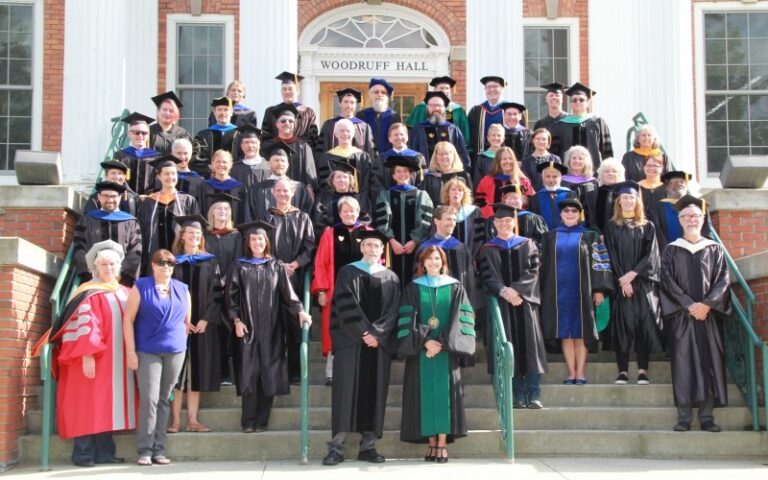Another virtual graduation
The Castleton senior class of 2021 is facing disappointment in light of recent news regarding this year’s commencement ceremony.
Castleton President Jonathan Spiro sent an email early on Feb. 22 announcing the ceremony would be virtual this year, due to social distancing protocols and the travel limitations from COVID-19.
This being the second year with a virtual ceremony, Spiro’s and the Commencement Committees’ reasoning put the pandemic’s current state into perspective.
“They considered the pros and cons … and various locations for four options: traditional in-person ceremony, drive-by ceremony, multiple small ceremonies and a virtual ceremony,” he said in a recent interview.
At first, the committee chose multiple small ceremonies, but “given the current travel restrictions and limitations on crowd size – they recommended, and I agreed, that we have to hold a virtual ceremony,” Spiro said.
He received feedback almost immediately from students and mothers pleading for a traditional ceremony.
“I understand their frustration. But given the fact that families and supporters would not have been able to attend an in-person ceremony this year, I am convinced that virtual is the way to go … This way, every grad, even ones that are studying out of state, and all of their supporters can participate and have a ceremony they can watch forever online,” he said.
Olliver Young, a Castleton senior and first-generation college student, was disappointed by the news.
“I hadn’t had my hopes up for a regular graduation, but I didn’t think it would be fully virtual. I’m first generation, walking across that stage was a pretty big deal,” he said.
Despite Young’s hopes, he said he understood the circumstances.
Castleton senior Cydney Krone has experienced the effects of COVID-19 and was relieved by a virtual ceremony.
“The pandemic really affected my family. We all got COVID. L.A. got the virus very badly. I’m trying to be sensitive to the seniors, but I’m also thinking holistically,” she said. “After having all the effects, I had residual effects and had to go to the ER. I saw people on ventilators, people screaming, I saw what the hospital looked like.”
Knowing the size of the would-be graduation event, Krone was apprehensive due to her experience with COVID, and campus protocols.
“I know people who signed the Spartan pledge and aren’t following it. I also think a virtual graduation is the most inclusive to a person’s comfortability,” she said.
Being from a different environment, she understands people’s reactions are circumstantial.
As the U.S. surpasses 500,000 COVID deaths, concerns of safety stay at the forefront of this decision.
“At the end of the day, it looks a lot better to be safe, than to have a super spreader event,” Krone said.
Young expressed the same sentiment.
“I would’ve been upset with the university if they did a normal graduation, more so than if they did a virtual one,” he said.







